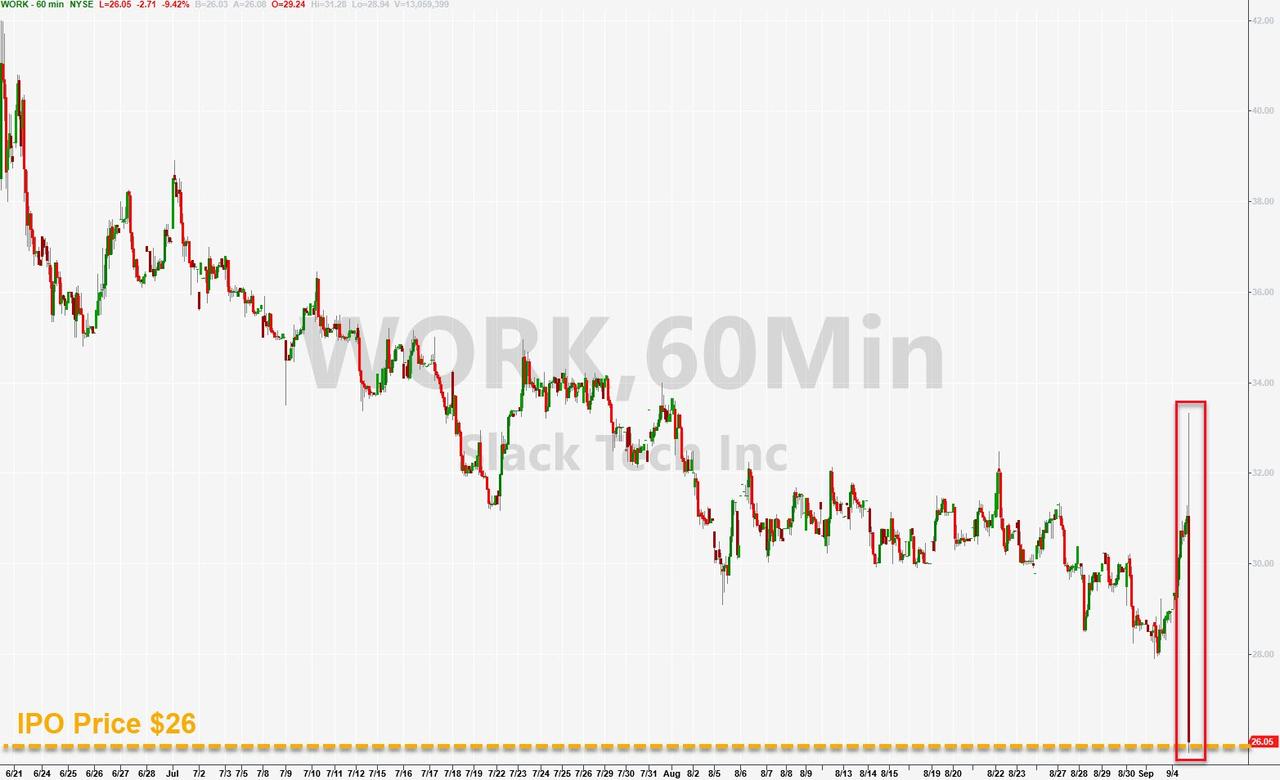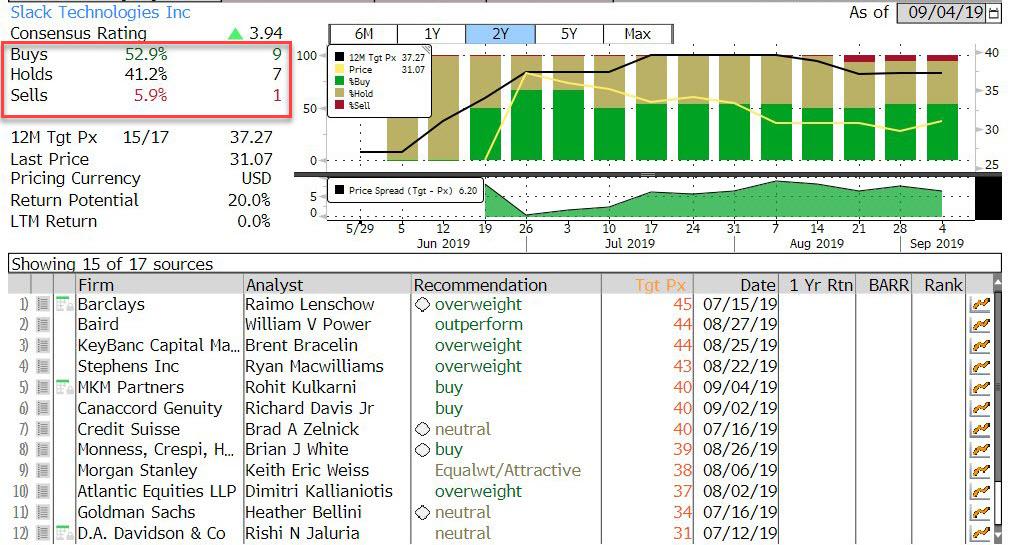If seems like it was only yesterday that Slack became the latest Silicon Valley darling to go public, or rather “public”, because unlike most of its peers, instead of filing to go public via an initial public offering, Slack filed an application for a Direct Listing, for one simple reason: unlike an IPO which carries a 180-day lockup period for insiders and pre-IPO shareholders, stakeholders in the Slack June 20 direct listing could sell right away (as long as they’ve owned their stake for at least a year).
Which apparently they did, because while Slack hit an all time high of $42 the day it went public on June 20, it has dropped every single day since, and moments ago it crashed 15% after hours after its first report as a public company, when it disappointed investors by guiding on revenues and EPS which both came in below expectations:
- The company now sees FY revenue of $603 million to $610 million, with the midpoint just below the consensus estimate of $607.2 million
- Slack also saw 3Q loss per share 8c to 9c, also below the 7 cent loss expected.
The kneejerk reaction was swift and merciless, sending the stock tumbling over 12% lower, and dropping below the IPO price of $26/share.
With today’s crash, Slack joins an inglorious club consisting of Lyft, The RealReal and Chewy, which all topped the day of their IPO, and have dropped ever since.
So can WORK rebound? Well, according to at least one bullish analyst, the $40 “valuation” target is based on 50% sustained revenue growth and a 26 multiple on revenues. Is that realistic? Take one look at the chart below and you decide.
Finally, surely at least one analyst anticipated that the initial euphoria would fizzle and the stock would crater, right? Well, yes: one. Because while one analyst (Morningstar’s Daniel Romanoff) has a Sell reco and a $14 price target, 9 have a Buy and 7 have a Hold.
![]()
Zero Hedge’s mission is to widen the scope of financial, economic and political information available to the professional investing public, to skeptically examine and, where necessary, attack the flaccid institution that financial journalism has become, to liberate oppressed knowledge, to provide analysis uninhibited by political constraint and to facilitate information’s unending quest for freedom. Visit https://www.zerohedge.com


